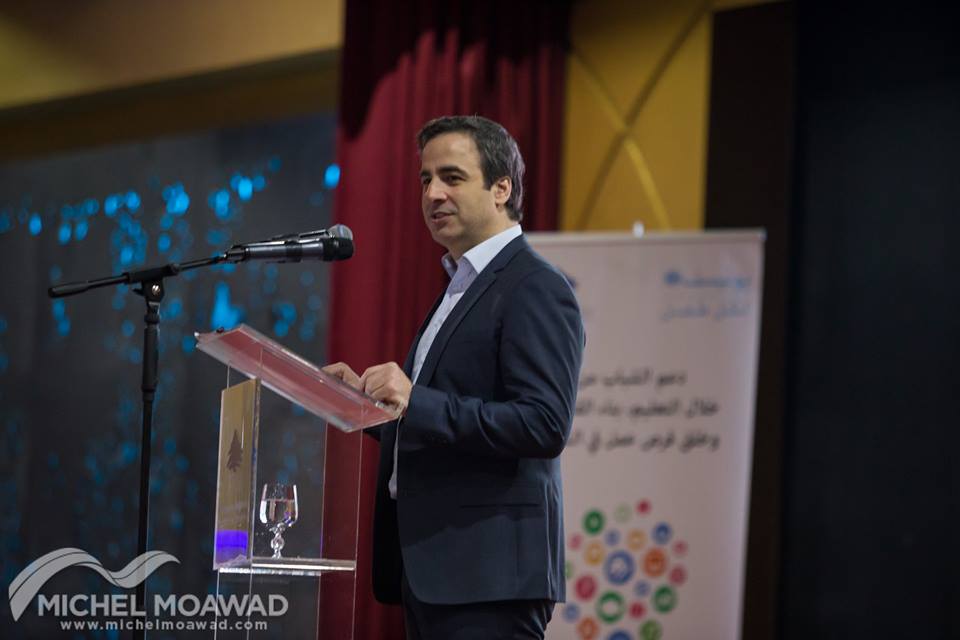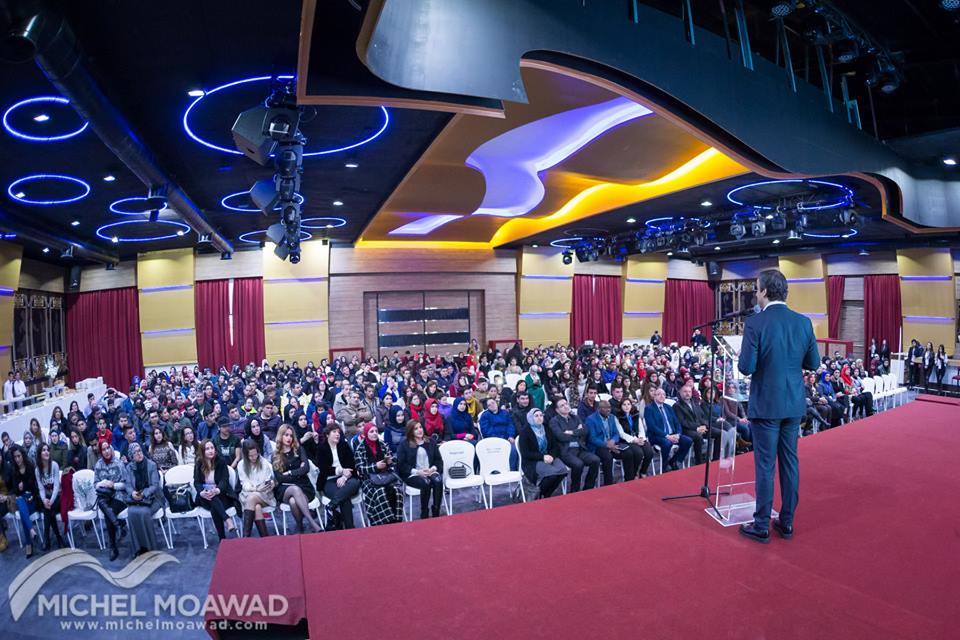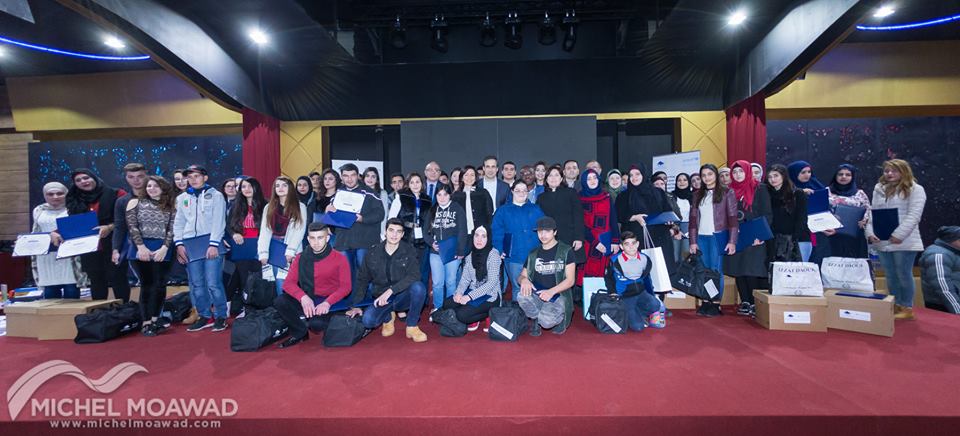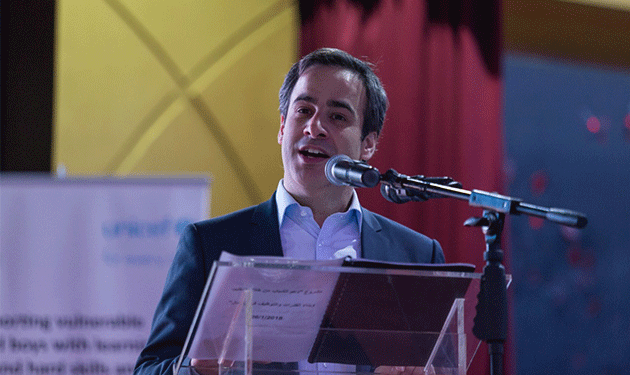RMF’s Executive Director, Michel Moawad, stressed on the importance of providing education and vocational trainings for the youth, as well as building their capacities and life skills, and enhancing their social awareness and their spirit of initiative and participation. This would allow them to confront the deprivation and marginalization that they are facing, and provide them with the opportunity to rely on themselves. It will also lead to building a healthy society, in which they would be fully engaged and hold an active presence.
Moawad was speaking at the graduation ceremony, held at the “Tierra Nova Village Club”, Kfarzayna, Zgharta, for more than 650 youth who successfully passed accelerated courses in Technical and Vocational Education training. The event was within the framework of the “Supporting vulnerable girls and boys with learning, soft and hard skills and employ-ability programmes in the North” project, supported by the United Nations Children’s Fund (UNICEF) and implemented by the René Moawad Foundation (RMF) in North Lebanon.)

Speaking about the project, Moawad explained: “The importance of the project is that it brings hope to the youth in areas that suffer from precarious economic and social conditions, providing them with positive tools to face life’s struggles. Tools, such as knowledge, education and technical skills, instead of guns, bullets, murder, fanaticism and terrorism, to help them move out of their socially marginalized situation, and become efficient and productive elements that society can rely on.”
He added: “This project is also important because it opens new horizons to young men and women, and proves to them that if they put in proper efforts and seek education, they can hold dreams and get the chance to make these dreams become reality. They would be able to free themselves from any dependence from others, and even make others depend on them.”
Moawad also addressed the significant failure of the government in dealing with the issue of school dropouts, which comes as a result of the pressing economic and social conditions and the Syrian refugees’ presence. He said: “We should all put a lot of efforts in order to help put an end to the school dropouts’ social problem.”

He emphasized on the care that RMF puts to provide skills and professional and technical practical experiences for young men and women. “RMF is convinced that these learned skills open a whole new horizon for youngsters,” he said, “especially that there is a need for such technical services and manual works in the communities. Everyone should become aware that today, the labor charges for specialized man-labor with proper experience are higher than what many university degrees holders earn.”
Moawad concluded with a word of thanks to the UN and in particular the UNICEF for allocating 1,055,000 USD for the project, adding: “We in Lebanon, and especially in the marginalized and deprived communities and regions, are in high need for similar programs. We are indeed able to achieve great things if the means are provided.”
Engineer Georges Kaloush, representing the Minister of Education and Higher Education Marwan Hamadeh, then gave a brief speech, in which he said that, in the fields of general education, as well as vocational and technical education, North Lebanon has offered a lot for the whole country. He thanked RMF for all its efforts, and concluded saying: “It is at the school and at the institute that the search for truth starts. Truth alone can build nations.”
In his remarks, the UNICEF Chief of Tripoli Field office, Mr Damascus Machari, thanked RMF for its successful implementation of the project.
This was followed by the distribution of certificates for the graduates, along with start-up toolkits that would help them enter the work markets. The event ended with a cocktail reception held at the club.
2277 young men and women, from the Mennieh, Dunnieh, Zgharta and Tripoli regions, all aged between 14 and 24, benefitted from the project. The project also offered the opportunity for more than 650 Lebanese and non-Lebanese young men and women to enter the fields of technical and vocational training and innovative skills building programs, providing them with the opportunity to access vocational fields, and privileged them for finding job opportunities.








 العربية
العربية